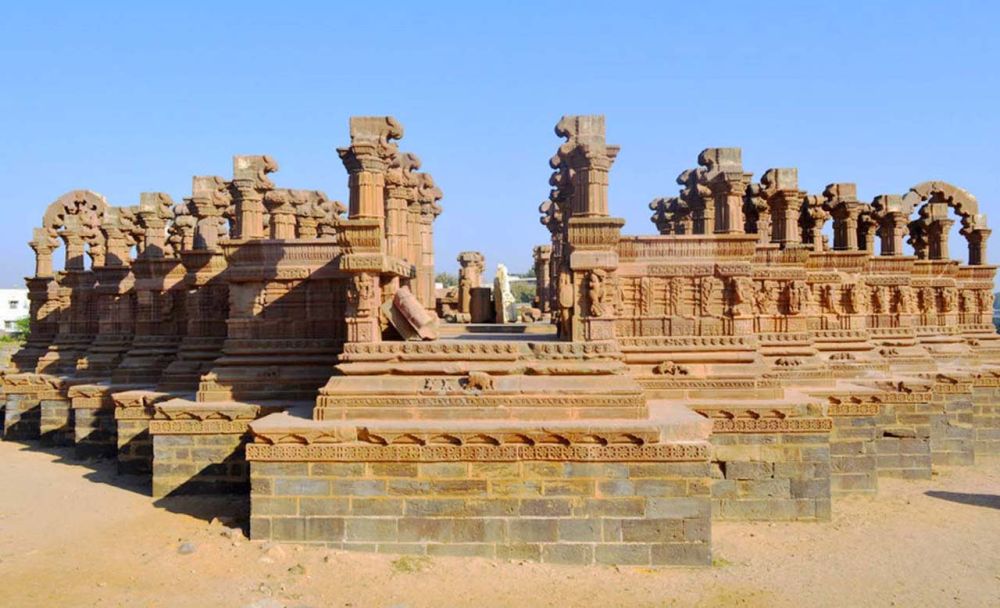

Bhuj, the quaint city located in the Kutch district of Gujarat, is steeped in history and culture. Historically, it has been recognized as a city of great strategic importance due to its location. Founded by Rao Hamir in 1510, it became the capital of Kutch under the rule of Rao Khengarji I in 1549. Bhuj has played a role in various historical events, including the Indo-Pak wars where it was used as an airbase.
However, it was not until the later part of the 20th century that Bhuj emerged as a tourism hotspot. The rich tapestry of handicrafts, festivals, and royal heritage began attracting tourists. Visitors came to explore the beauty of the White Desert (Rann of Kutch), admire the intricate art and craftsmanship, and delve into the historical legacy of its palaces and museums.
The Aina Mahal (Mirror Palace) and Prag Mahal stand as testaments to the grandeur of the royal lineage, drawing history enthusiasts. The vintage charm interlaced with tales of royalty has continually captivated visitors.
The influence of tourism became particularly noteworthy with the annual Rann Utsav, a festival that showcases the cultural variety of Kutch. Instituted in the 2000s, this event brought Bhuj and its surroundings to the limelight, offering a blend of folk music, dance, craft bazaars, and authentic Kutch cuisine.
The 2001 earthquake dealt a significant blow to Bhuj, ravaging much of its historical architecture and affecting its tourism sector. Nonetheless, the city showed incredible resilience, and the reconstruction efforts included rebuilding the tourism infrastructure. This period was critical as it highlighted the vulnerability and the value of Bhuj's heritage and cultural assets.
Today, Bhuj is an amalgamation of traditional and modern tourist experiences. The city has seen a surge in eco-tourism initiatives with visitors seeking sustainable travel options that respect the local ecology and traditional practices.
The trend of heritage walks around the old city, exploring centuries-old markets and architectural marvels, has become increasingly popular among travelers wishing to experience the real pulse of Bhuj. The governmental and non-governmental bodies have also made strides in promoting responsible tourism that contributes to the social and economic development of local communities.
The future of tourism in Bhuj appears bright with digital innovation facilitating virtual tours and interactive experiences. Yet, the essence of Bhuj tourism remains rooted in its heritage, attracting visitors who seek to immerse themselves in its rich cultural fabric.
As it stands, Bhuj is a testament to the evolution of tourism grounded in heritage and culture. The continuous efforts to preserve and promote its historical essence, alongside adopting new trends, have poised the city as a hub for travelers looking for authenticity and sustainability within India's vast tourism landscape.